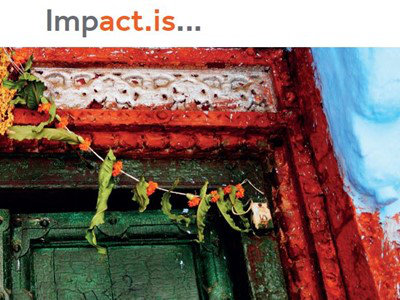First for Industry as Actis Publishes Open Source Impact Measurement Framework

- Actis Impact Score is first to show, using real and diverse examples, how positive social and environmental impact from investment can be quantitatively measured, tracked and compared across sectors and geographies
- ‘Impact Is the New Normal’ white paper builds on collaborative industry framework to create a measurement standard
- If impact investing is to achieve its potential, unverified, opaque and incompatible industry metrics should be replaced, says Actis
In a drive to systematically measure the social and environmental impact of investments, Actis today publishes a white paper that for the first time uses real examples to show numerical comparisons across diverse sectors and geographies.
Actis, one of the biggest investors in renewable energy worldwide and with holdings across healthcare, education, real estate, and financial services, has created a replicable system that aligns with the UN Sustainable Development Goals. Its impact measurement approach builds on frameworks established by the World Bank’s IFC and the Impact Management Project (IMP), a forum bringing together more than 2,000 organisations to develop global consensus on how to measure, report and compare impact performance.
“We are delighted that Actis has developed its methodology in a way that aligns with the IMP norms, and has now committed to publish this methodology for the benefit of the broader market,” said IMP Chief Operating Officer Olivia Prentice. “This kind of transparency is critical if we want to capture the knowledge of established practitioners, and build on that to enhance best practice over time.”
The Actis Impact Score begins by identifying up to five verifiably positive outcomes for people or the planet associated with an investment or project. It then assigns points in a range of 1-5 for each dimension of impact, namely:
- Depth and duration of the positive change (e.g. sustainable healthcare reducing mortality would score higher than something more short-term, shallow or reversible)
- Amount of people or beneficiaries positively impacted and how well-served or under-served they are
- How essential the investor or management team were to achieving the positive impact (i.e. whether it might have happened in any event)
These individual scores are added together and then multiplied:
- x5 if the outcome is core to the investment (e.g. renewable energy company displacing carbon intensive sources)
- x3 if the outcome is ancillary to purpose (e.g. smallholder farmers benefiting from a supermarket that directly procures fresh produce)
- x1 if the outcome is peripheral to activity (e.g. community health camps provided by a gas power plant as part of a philanthropic program)
Alongside each score is an assessment of whether there’s a low, moderate or high risk of the investment failing to achieve its intended impact. The combined points for each of the five positive outcomes make up the Actis Impact Score, which is then externally audited.
Torbjorn Caesar, Actis Senior Partner, said: “Numerous conversations with investors demonstrate that despite extensive awareness and enthusiasm, many investors are constrained from putting money to work in impact investing because they lack a transparent system to assess and compare impact returns in the same way as they would compare financial returns.
Our framework takes an evidence based approach to ensure we are focused on measurable improvements in impact, applicable to investments across multiple industries.”
Impact investment assets doubled last year, reaching $502 billion, according to the Global Impact Investing Network. A survey compiled by London-based OnePoll earlier this year showed 62% of respondents would opt to put their pension or other savings to use in investments that positively impact society and the environment, given the choice. This includes more than 15% who would opt for impactful investments even if there were a risk that this might compromise some of their investment return. The poll was commissioned by New Markets Media & Intelligence, a London-based consultancy.
On this basis, global assets dedicated to impact investing should reach several trillions of dollars. The United Nations estimates that all of its 17 Sustainable Development Goals – zero hunger, good health, clean water and sanitation – could be achieved with about $6 trillion deployed.
“Unverified, opaque and incompatible industry approaches to measurement must be replaced if impact investing is to achieve its potential,” said Shami Nissan, head of Responsible Investing at Actis and one of the creators of the measurement methodology. “Effective measurement and verification will expose ‘impact washing’ – a significant threat to investor trust.”
Actis is a founding signatory to the IFC’s Operating Principles for Impact Management (‘the Principles’), an inaugural international market standard for impact investing.
In recognition of its achievements, Actis was named “Impact Investor of the Year” at the 2018 Private Equity International Awards.